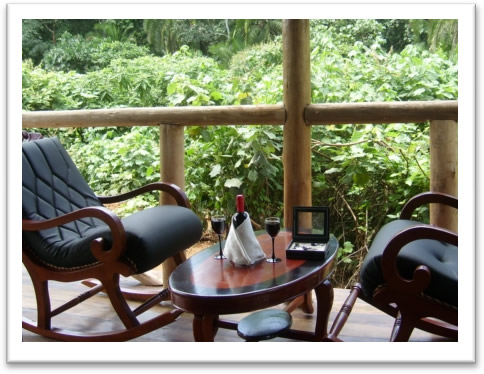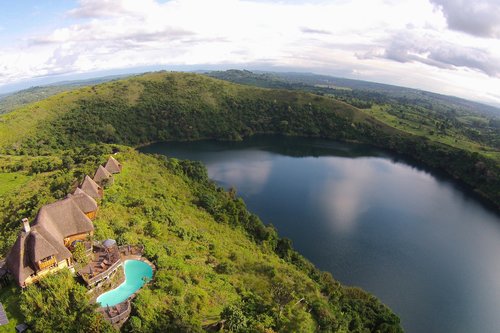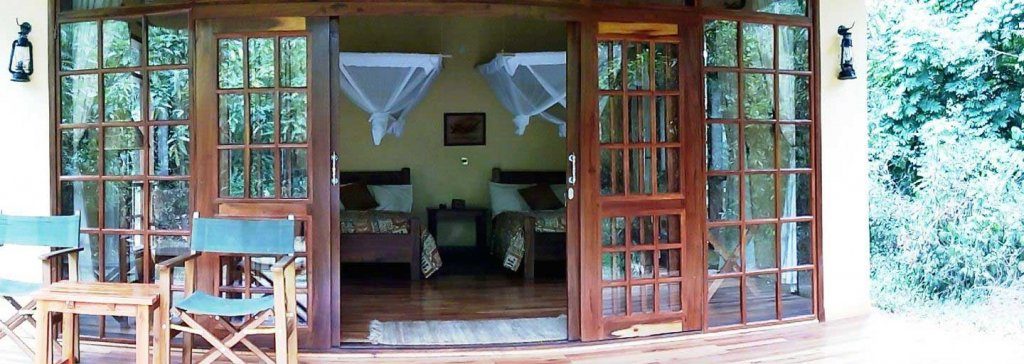Kibale National Park covers an area of about 795km and its acknowledged to have one of Uganda’s most gorgeous tropical forest. It’s a habitat to many forest wildlife and among these includes the 23 species primates along with chimpanzees, monkeys, and the southern Kibale connects to the heart of Queen Elizabeth National park. The Forest covering predominates the central and northern part of the park on the raised Fort Portal plateau. At the park’s northern tip, Kibale is highest and stands 1590m above sea level.
Additionally the wettest area is Northern Kibale, receiving an average annual rainfall of equal to 1700mm, mainly during March-May and September-November. The climate is usually pleasant with an average annual temperature range of 14 to 27oC. Temperatures are at maximum (& rainfall lower) in the south where the terrain drops onto the blistering rift valley floor and forest provides way to open grassland and Kibale-Fort Portal region is one of Uganda’s most pleasing places to explore as you may continue to Queen Elizabeth, Rwenzori Mountains & Semuliki National Parks and Southern Kibale joins Queen Elizabeth National Park and together these protected areas maintain a 180km-long migration corridor for wildlife which extends from Ishasha, the remote southern sector of Queen Elizabeth NP, to the Sebitoli forest in the north of Kibale.
The diversity and density of primates in Kibale is the highest in Africa. The most famous of its 23 species is the chimpanzee, our closest relative. Kibale’s 1450 chimpanzee represent Uganda’s largest population of this endangered primate. Kibale is also home to the rare I’Hoest’s monkey and East Africa’s largest population of the threatened red colobus monkey. Other primates include the black and white colobus, blue monkey, grey cheeked mangabey, red tailed monkey, olive baboon, bush baby and potto.
Foral and fauna
Other mammals are present, though rarely seen. These include forest elephant, buffalo, leopard, bush pig and duiker. A keen observer may also spot reptiles and amphibians as well as a colourful variety of butterflies.
The park boasts 325 species of birds, including 6 that are endemic to the Albertine Rift region, namely black-capped apalis, blue-headed sunbird, collared apalis, dusky crimsonwing, purple-breasted sunbird and red-faced woodland warbler. Other Kibale specials include the African pitta, green breasted pitta, black bee-eater, yellow spotted nicator, yellow rumped tinker bird, little greenbul, black-eared ground thrush, brownchested alethe, blue-breasted kingfisher, Abyssinian groundthrush, and the crowned eagle.
ACTIVITIES:
– Chimpanzee Trekking
– Chimpanzee Habituation
– Hiking and Nature Walk
– Nature/Forest Walk






